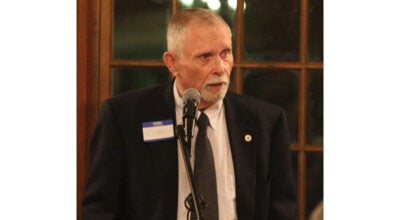Bread redux
Published 5:00 pm Saturday, August 28, 2021
|
Getting your Trinity Audio player ready...
|
By Rev. Scott Baker
Over the past month churches that use the Revised Common Lectionary have been inundated with Jesus’ discourse on being the bread of life. Beginning a month ago, we heard about the miraculous feeding of the 5,000 and have followed the discourse around a whole new meaning of bread. We have moved from it being a dinner table staple and something relatively ordinary to something extraordinary.
Over a year ago I wrote another article about bread and the bread-baking craze that had swept a quarantined population. There were even flour shortages for a while. Despite the uptick in gluten awareness and sensitivity, bread still occupies a very critical place in our diets.
As I had written so many months ago, bread plays a central role in the Bible as well. It is the very sign of God’s providential love to the Israelites as they enter the wilderness upon leaving Egypt. Manna is rained down from heaven upon the Israelite people each day to sustain them through the long journey to the promised land. Jesus, of course, feeds multitudes with bread (and a few fish) and it is in satiating their hunger that leaves them wanting for more. And of course, on the night before He was crucified, He took bread, gave thanks, broke it, and gave it to His disciples saying, “Take, eat, this is my body, which is given for you. Do this in remembrance of me.” No doubt they were thinking (among other things) of His explanation to the crowd who sought Him out after the miraculous feeding when He said, “I am the bread from life. Whoever comes to me will never be hungry and whoever believes in me will never be thirsty. (John 6:35)”
Now that we are back to in-person worship, the central role that bread plays has stood out in bold relief. After a year of not being able to share communion together, being able to do so has reinforced how very vital it is to our spiritual lives. As Fredrick Buechner, one of my favorite writers puts it,
“It is called Holy Communion because when feeding at this implausible table, Christians believe that they are communing with the Holy One himself, his spirit enlivening their spirits, heating the blood and gladdening the heart just the way wine, as spirits, can.
They are also, of course, communing with each other. To eat any meal together is to meet at the level of our most basic need. It is hard to preserve your dignity with butter on your chin, or to keep your distance when asking for the tomato ketchup.
To eat this particular meal together is to meet at the level of our most basic humanness, which involves our need not just for food but for each other. I need you to help fill my emptiness just as you need me to help fill yours. As for the emptiness that’s left over, well, we’re in it together, or it in us. Maybe it’s most of what make us human and makes us brothers and sisters.
After a year of not being able to share communion together, to embrace it once again truly transforms it into an extraordinary and even divine dining experience.
REV. SCOTT BAKER is the rector at Emmanuel Episcopal Church in Franklin. Contact him at 757-562-4542.





